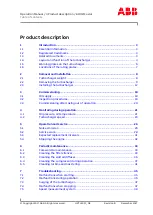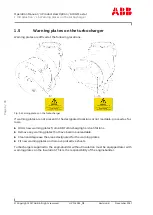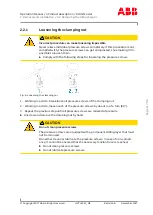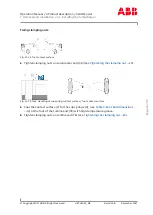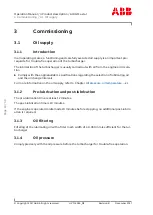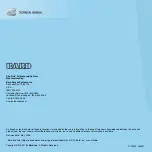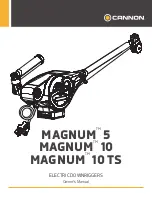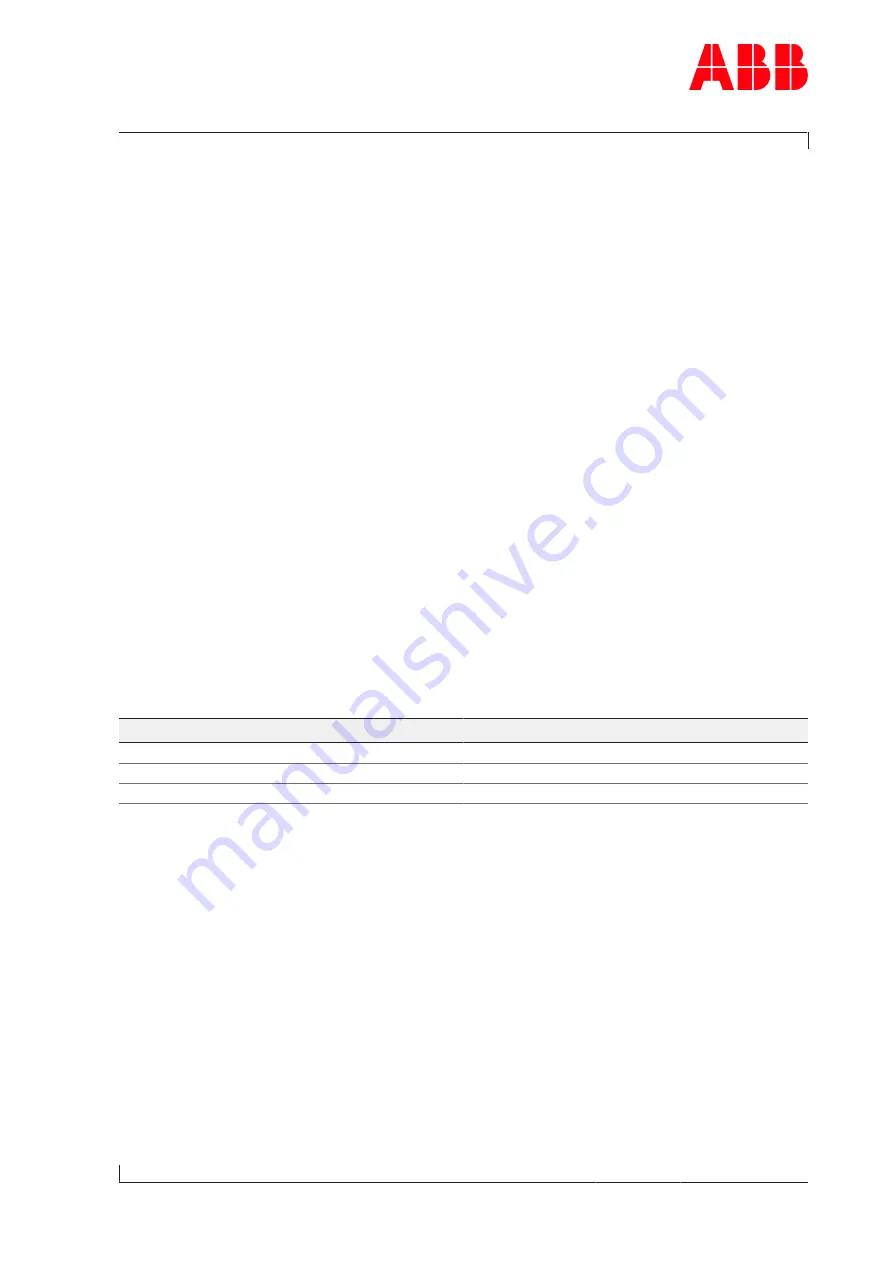
Operation Manual / 4 Product description / A100-M axial
1 Introduction / 1.1 Essential information
© Copyright 2017 ABB. All rights reserved.
HZTL4033_DE
Revision B
December 2017
1
Introduction
1.1
Essential information
Design variants
This document is valid for different design variants of turbochargers. There may be sections
and descriptions of components that are not relevant for a specific turbocharger variant.
Please contact an ABB Turbocharging Service Station if you have any questions regarding a
design variant (see Contact information at
).
Accuracy of illustrations
The illustrations in this document are general in nature and intended for ease of understand-
ing. Differences in detail are therefore possible.
1.2
Registered trademarks
The trademarks of outside companies are used in this document. These are marked with the
® symbol.
1.3
Related documents
Chapter
Document number
Operation Manual / 1 Introduction
HZTL4005
Operation Manual / 2 Safety
HZTL4023
Operation Manual / 3 Safety data sheet *)
Serial number of the turbocharger
Table 1: Related documents
*) This chapter is only available in serialised operation manuals.
Page
3
/
99













